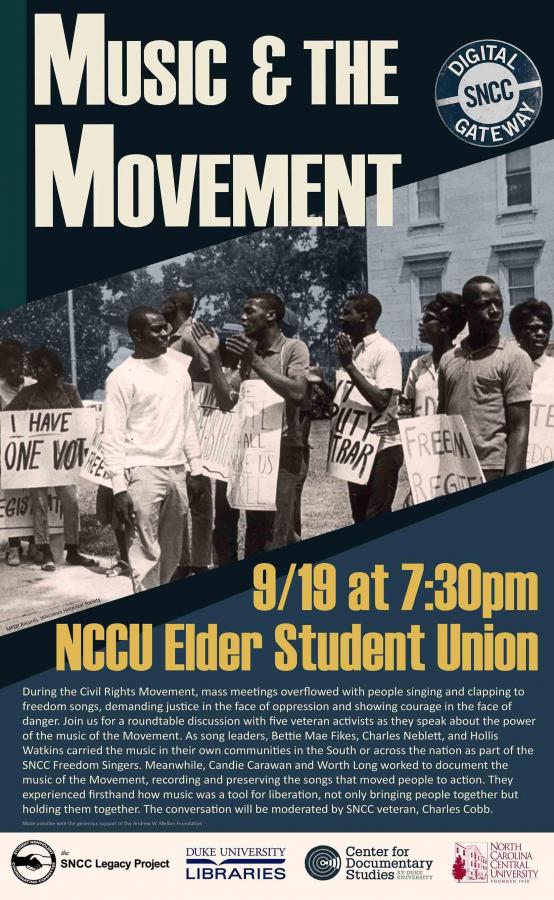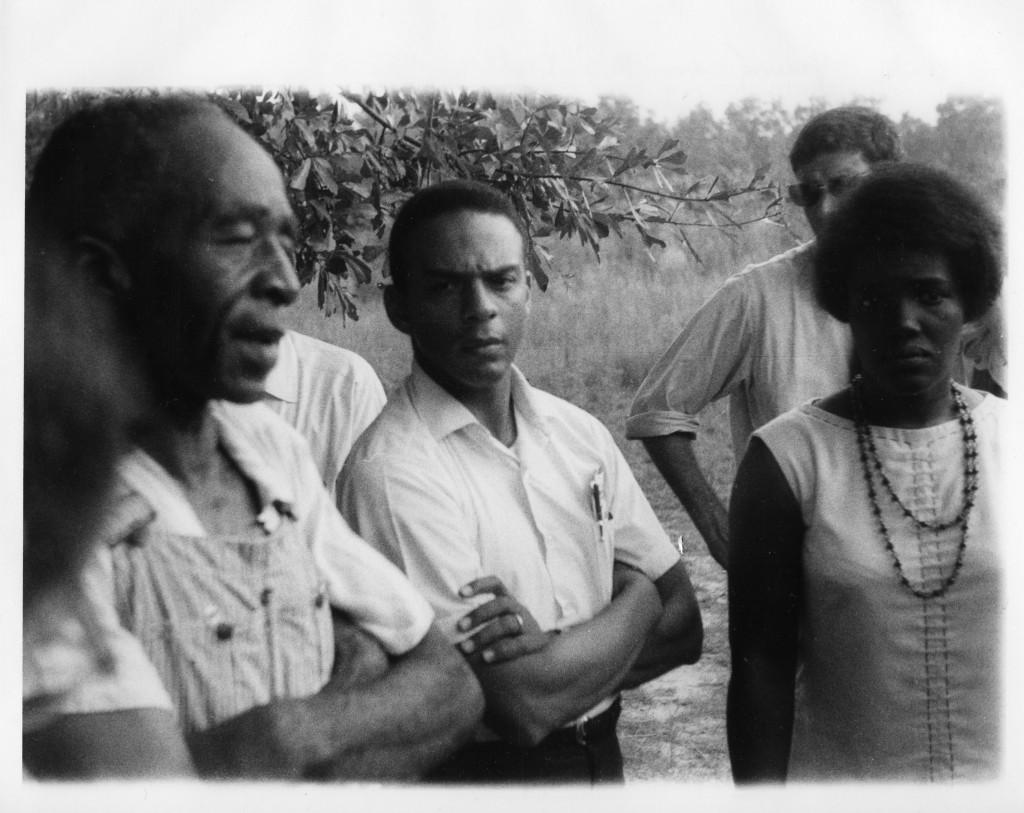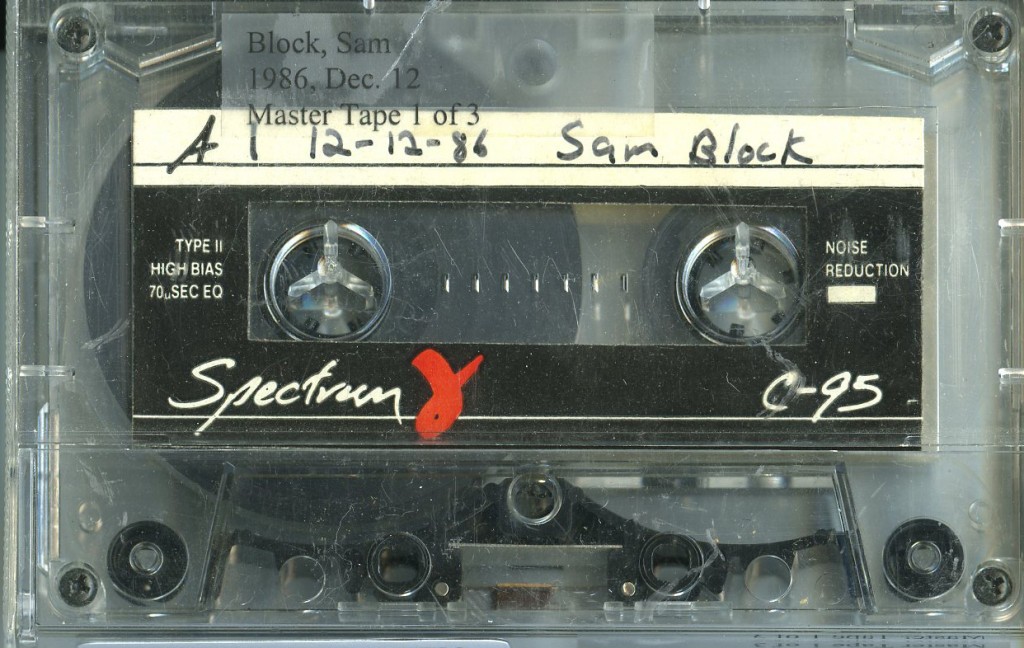Post contributed by Craig Breaden (Audiovisual Archivist for the Rubenstein Library) and Liz Adams (Rare Materials Cataloger for the Rubenstein Library)
Harold Becker’s film, Ivanhoe Donaldson (1964), which was filmed during August, September, and October 1963, follows the titular Ivanhoe Donaldson, a 21-year-old Student Nonviolent Coordinating Committee (SNCC) field secretary as he travels from his home in East Lansing (Michigan), to Danville (Virginia), Selma (Alabama), and Greenwood (Mississippi), organizing demonstrations and voter drives. This rare 16mm film was recently acquired by the Rubenstein Library and is one of the first films we have digitized using our newly-purchased motion picture film scanner (a Filmfabriek HDS+). The film scanner, beyond offering impressive technical capabilities (we can scan each image up to 4k!), allows us to further our commitment to the preservation and discoverability of our moving image resources in the interest of the histories they generate and illuminate. In this case, footage shows Donaldson and other SNCC staffers, including Cordell Reagon and Avon Rollins, running workshops to show civil rights activists how to protect their bodies from high pressure water hoses and riot sticks; it shows canvassers urging citizens to exercise their right to vote; and it shows SNCC staffers invoking the name of Medgar Evers and discussing the efficacies of indirect and direct action in the wake of the 16th Street Bombing in Selma, Alabama.
Ivanhoe Donaldson not only documents the work of Donaldson and SNCC, but it also captures the joy with which they work. Between footage of workshops and peaceful demonstrations, the camera follows staffers as they clap their hands and sing civil rights staples like “We shall overcome.” Donaldson is frequently shown singing boisterously, even if in the words of Dorothy Moore, “he can’t sing too well.” But more than anything else, it’s incredibly clear that Donaldson loves to sing, and when he does, there’s nowhere he’d rather be. And as audience members, we’re right there with him.
With the courage of his namesake, Ivanhoe Donaldson both shaped and survived a crucible moment in American history as a field secretary for the Student Non-violent Coordinating Committee, organizing and training young people to put themselves in harm’s way, challenging white supremacy and asserting the right to vote. Becker’s emotionally-charged cinema vérité, the product of following Donaldson and his foot soldiers through the South in the summer and fall of 1963, provides an immediacy that is unique to film and, as SNCC’s members age and pass, a meaningful perspective to supplement memory. Also, having a resource created with documentary and poetic intention at the time the events occurred — much like James Karales’ photographs from an earlier period of SNCC’s existence — enlivens the dialogue of past and present immeasurably.
The digitization and preservation of the Ivanhoe Donaldson film is part of a larger effort made by the Rubenstein Library over the last decade to ensure that SNCC’s legacy is captured in documents, photographs, oral histories, and conferences, and made available on websites such as the SNCC Digital Gateway (https://snccdigital.org/). To learn more about Ivanhoe Donaldson, you can view a biographical entry and listen to an interview at https://snccdigital.org/people/ivanhoe-donaldson/.
So, you might be wondering, when can I see the whole Ivanhoe Donaldson film? Since the film is still under copyright, we cannot post it to the web. But, you can view the newly digitized preservation copy by requesting the film in the online catalog and then visiting the reading room at the Rubenstein Library.







